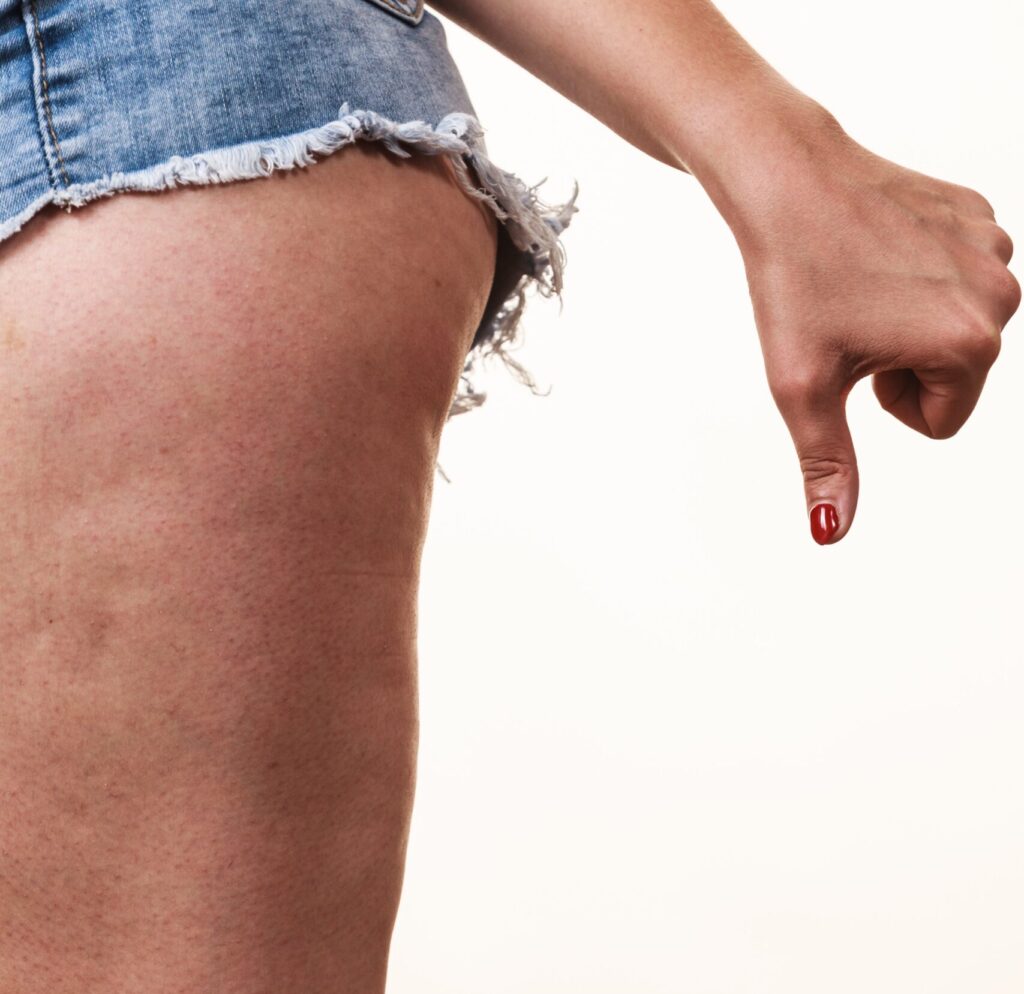
Edematous fibrosclerotic panniculopathy or cellulite does not only affect women of every body type, but it also affects men. As much as it does not pose a major health risk, it can lead to cosmetic embarrassment.
What is Cellulite?
It is a dimpled appearance characterized by a collection of fat at the subcutaneous level, where water and connective tissue collect and solidify over time. Basically, fat cells herniate within vertical fibrous connective tissue bands and then harden, manifesting as dimpling and nodules on the skin surface.
It is unique because it does not offer any insulation and collects in different parts of the body, such as the thighs and the side of the buttocks. Everyone can suffer from it though individuals with a high body mass index are more susceptible.
Several factors can lead to the formation of cellulite, including;
- Dehydration
- A slow rate of metabolism
- Poor diet
- The thickness of the skin
- Lack of physical activity
How is Cellulite Treated?
A host of treatment modes have been developed over the years, some with variable success. The different modes of treatment have the possibility of improving your appearance and enhancing patient satisfaction. Below are the current treatment options available for people suffering from cellulite.
Weight Loss
If you are overweight and you experience cellulite, you can engage in consistent weight loss. This will help in minimizing stress on fibrous compartments and making the appearance less cobblestone.
Tissue Massage
A massage can help improve the appearance of cellulite. This is through the drainage of excess lymphatic fluid, minimizing fat cell mass, and enhancing micro circulation in your skin. You need to avoid a deeper message because it can lead to bruising, skin injury, and hematoma.
Use of Topical Creams
The cosmetics market is filled with different types of creams that promise a cure for cellulite. Only a few of these creams have had some positive effects.
Retinol, a vitamin A derivative retinoid, is one of the few creams that manages cellulite by enhancing your skin’s thickness and strength. Caffine and Aminophylline/theophylline creams have vasoconstrictor effects in the skin. This reduces intracellular edema and promotes lipolysis. Basically, they shrink the fluid-filled fat cells tightening the superficial skin, resulting in smoother looking skin.
Injection Therapies
The use of injectable properly manages cellulite when the concern is about a small area.
The common injectable fillers used in managing cellulite stimulate new collagen to improve features and fill your skin’s depressed areas. Both Radiesse and Sculptra, two commonly used cosmetic dermal fillers have been used for this purpose.
Quo, a collagenase derived from clostridium histolyticum, is a new, recently FDA-approved injectable therapy the corrects the appearance of cellulite. The product dissolves and releases the fibrous septae that pull down on an individual’s skin to their muscle fascia, leading to the dimpled surface appearance.
Lipo-contouring
Cryolipolysis, aslo known as Coolsculpting is a technique that destroys subcutaneous fate cell by rapidly cooling and freezing them, sparing any ill affects to skin or other body tissues. Coolsculpting can be combines with electromagnetic shockwave theapy to minimize the appearance of cellulite.
Skin Tightening Devices
A number of dermatologic devices can heat underlying subcutaneous tissues, promoting skin tightening and fat breakdown. In general, radiofrequency (RF) and microfocus ultrasound (MFUS) modalities are typically used for these purposes. The Candela elos Plus sublative and sublime RF platforms, as well as the Profound RF microneedling system have been used for these purposes. Ultherapy is an example of a MFUS device that has been successfully used to treat cellulite in this way as well.
A combination approach, known as laser liposuction (brand name Cellulaze), uses a a 1440-nm Nd-YAG laser liposuction device to deliver thermal fat lipolysis and fibrous band excision at the same time.
Subcision
Subcision is a surgical procedure where a specialized blade is inserted just under the skin to sever the fibrous connective tissue septae bands that pull down the skin and lead to a bumpy, cobblestone skin. Subcision can be accomplished with hand-held tools, like a Nokor needle or forked liposuction cannulas, or larger vacuum devices like the Cellfina system.
Specialists have different tools to manage cellulite. The different approaches have a specific return on investment that is consistent with the patient’s objectives. Contact me to learn more about cellulite and its treatment options.
Previous Post Next Post